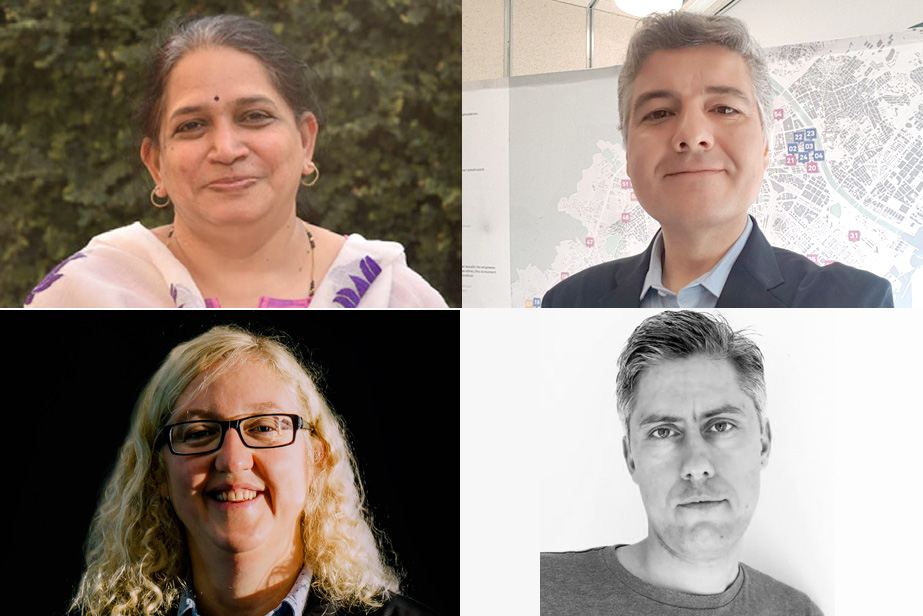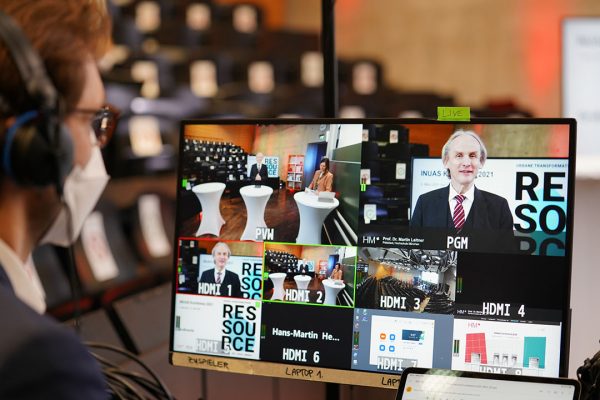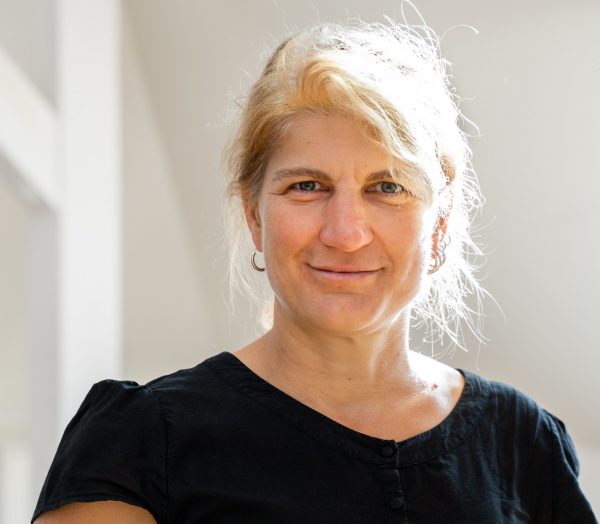Keynote-Speaker der INUAS-Konferenz 2019: Wohnen unter Druck

Amita Bhide und Javier Burón Cuadrado nehmen auch an der Open Discussion am 6. November um 13:00 teil.
4. November, 10:00
Loretta Lees: Planetary gentrification: institutionalised apartheid?
Loretta Lees ist Stadtgeografin und über ihre Arbeit zu Gentrifizierung/Stadterneuerung, globaler Stadtforschung, Städtepolitik, urbaner öffentlicher Raum, Architektur und urbane Gesellschaftstheorie international bekannt. Bei den meistzitierten Autor*innen im Fachbereich Stadtgeografie ist sie weltweit an 17. Stelle und damit die einzige Frau in den Top 20 (Urban Studies, 2017, doi: 10.1177/0042098017717205).
Die Keynote findet auf Englisch statt.
Urban theorist Richard Florida wrote in 2008 that ‘the most successful cities and regions in the United States and around the world may increasingly be inhabited by a core of wealthy and highly mobile workers leading highly privileged lives, catered to by an underclass of service workers living farther and farther away’. In this talk I argue that global society and space is moving toward a state of planetary gentrification, related to the ascendancy of the secondary circuit of real estate, that is leading to institutionalised apartheid, creating new spaces of exclusion, justified as progress and development and even as helping the poor.
4. November, 11:00
Amita Bhide: The Nation as real estate: Housing utopias in contemporary India
Dr. Amita Bhide ist derzeit Professorin und Dekanin an der School of Habitat Studies am Tata Institute of Social Sciences. Am Institut unterrichtet sie seit über acht Jahren zum Thema Wohnen. Sie hat aktiv zu Wohnbaupolitik geforscht, darunter zu Programmen wie Slum Rehabilitationsprogrammen und PPPs und arbeitete zu Beiträgen auf Ebene der Politik, die in Verbindung mit pro poor housing und Immobilienregulierung durch Arbeitskreise von Staatsregierungen stehen. In vergangenen Jahren weitete sich ihre Forschung insbesondere auf Studien zu Wohnthematiken und leistbarem Wohnen in kleinen und mittelgroßen Städten Maharashtras aus. Darüber hinaus arbeitet sie in pan-indischen Netzwerken der Zivilgesellschaft, die sich mit Wohnen beschäftigen, mit. Ihre jüngsten Publikationen inkludieren ‘The Regularising State’ und ‘Comparing Informalities’.
Die Keynote findet auf Englisch statt.
The turn of the millennium has been characterised by an unprecedented emphasis on provision of housing for the urban poor in India. This push has been articulated through several utopias – ‘slum free cities’, ‘pro poor urban planning’, ‘inclusive housing’ and more recently ‘housing for all’. An analysis reveals that these policies are part of a push for rapacious development of land in the interest of private capital by the state. This paper engages with the modes of this state-capital nexus and the issues that emerge from the same.
5. November, 13:00
Sascha Roesler: Urban Climate in Everyday Life
Sascha Roesler ist Architekt und Theoretiker und arbeitet an der Schnittstelle von Architektur, Ethnographie, Wissenschaft und Technikforschung. Seit 2016 ist er Professor des Schweizerischen Nationalfonds zur Förderung der Wissenschaftlichen Forschung für Architektur und Theorie an der Academy of Architecture in Mendrisio, Schweiz. Roesler leitet eine Gruppe an Doktorand*innen und Post-Docs, die über Stadtklima-Phänomene aus der Perspektive der Architektur und des Urban Designs forschen. Zuletzt war er Mitherausgeber des Sammelbands “The Urban Microclimate as Artifact” (Basel 2018).
Die Keynote findet auf Englisch statt.
There are two basic traditions of inquiring urban climates from the perspective of architecture and urban design: on the one hand large-scale approaches, by considering the environmental factors and the built structures of cities and on the other hand micro-scale approaches, by referring to the sensorial experiences and the thermal practices of residents. In this talk, the second line of research shall be highlighted by discussing the competences, techniques and material resources engaged in the creation of various microclimates across the scales as well as along the seasons. In many parts of the world, cities are characterized by the absence of official thermal infrastructures in the residential sector and the strong presences of the residents’ agency for the control of microclimates, both inside and outside of the buildings.
6. November, 12:00
Javier Burón Cuadrado: Barcelona housing public policies: trapped between welfare state tardiness and globalization externalities
Javier Burón Cuadrado ist Wohnbaumanager der Stadtverwaltung Barcelonas. Er studierte Recht im Hauptfach und Wirtschaft im Nebenfach in Deusto, Bilbao (Licenciado en derecho por la Universidad de Deusto, especialidad jurídico-económica) und hat einen Master in Business Administration (MBA) sowie einen Master in Taxes (MAF). Javier Burón Cuadrado ist Experte für öffentliche Politik und Wohnungsmarkt sowie in Verwaltungsreform und neuen Formen von öffentlich-privatem Management. Zuvor war er Mitglied von Urbania ZH Management, einer Beratungsfirma in der öffentlichen Verwaltung. Er war Jurist bei Cuatrecases Gonçalves Pereira im Bereich öffentliches Recht. Er war Vizeminister für Wohnen und Planungsdirektor der baskischen Regierung. Zudem war er rechtlicher und wirtschaftlicher Berater für Parlamentsgruppen im Abgeordnetenhaus (Congreso de los Diputados) und im baskischen Parlament (Eusko Legebiltzarra).
Die Keynote findet auf Englisch statt.
Short overview of the current situation of the housing market in the city of Barcelona, description of the main municipal housing & urban tools in order to facilitate economic accessibility & mixture (social & affordable local housing plan, short term touristic rents municipal town planning instrument, low rent district development plans, etc), the role of other public administrations and the judiciary, the need of public private partnerships, the unavoidable State regulation controversy and future challenges to be addressed.








